Enchantment Wizard Build and Guide
Although Wizards are known for their exceptional spell-casting abilities both in and out of combat, School of Enchanment Wizards particularly specialize in control magic.
These spells allow the caster to concentrate and lock down enemies in a variety of ways. You’ll often be able to turn the fight into your favor by holding back enemy threats while your party defeats everything else!
While the Enchantment Wizard may play as more of a supporting caster, it can still cast a mean Fireball like the rest of them. Just aim carefully and don’t hit your allies!
In this guide, we’ll cover the Enchantment Wizards pros and cons, as well as how to build it throughout Act 1 (Act 2 and 3 are on the way!).
Find out where the Wizard ranks in our Baldur’s Gate 3 class tier list.
Pros and Cons
Pros
- Can greatly reduce the amount of damage taken during a fight
- Very flexible build options
- High damage available when needed
Cons
- Most Enchantment spells require Concentration
- Less self-sufficient than other Wizards
- Higher skill cap (needs understanding of weakest enemy stats)
Enchantment Wizards are a huge threat on the battlefield. When uninterrupted, their spells can cripple enemies to the point where they are rendered useless. This can set up guaranteed critical hits for your party members and often trivialize fights when all goes as planned. Even at a baseline, so long as the cast was successful, you’ll lock down foes and reduce the amount of attacks coming your way.
Additionally, since most crowd control spells require Concentration, you’ll only be casting one at a time. In fact, you’ll usually only need to cast 2-3 Enchantment spells per combat. While the exact amount will vary from fight to fight (and depend on save rates), you’ll ideally ignore the CC’d enemies and focus your attention elsewhere. Proper prioritizing equals prolonging the duration as long as possible!
What this means is you have more flexibility in the spells you choose to learn and prepare. You only need a few Enchantment spells. This allows the Enchantment Wizard to double as a primary damage dealer. After all, once you incapacitate your target(s), you’re free to shift into damage mode and go to town on your other enemies!
It is worth noting that Concentration comes at a hefty cost. By focusing on disabling enemies, you’re unable to cast support spells like Haste or create AoE damage zones. This does limit some of the other spells you choose to learn, as picking up more Concentration spells will be counter-productive to your primary role. Concentration also leaves you extra vulnerable to opposing attacks, as getting hit will force a Constitution save in order to maintain your spell. That could put you in a tough spot!
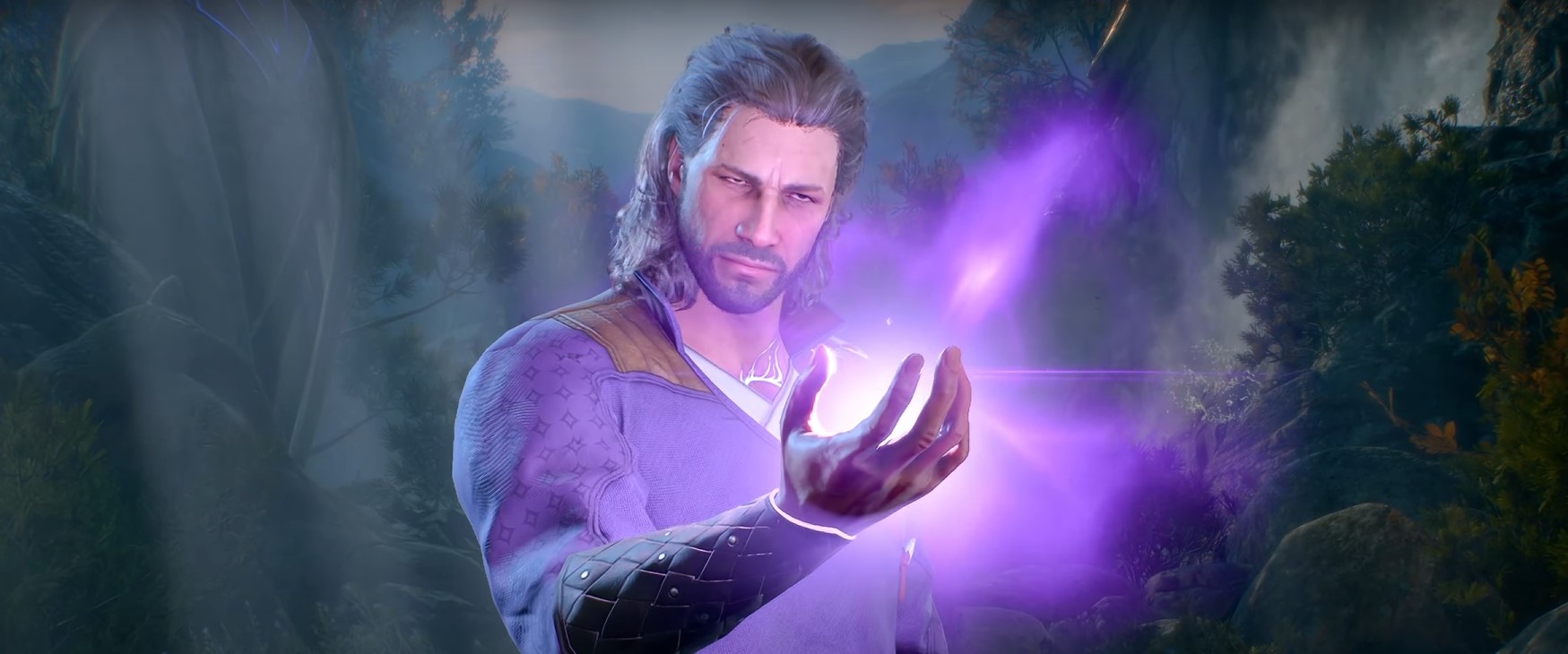
Enchantment Wizards trade damage for utility. While they can still cast Fireballs, their primary focus is on controlling enemies on the battlefield. This makes them less self-sufficient compared to other Wizards. Instead, they take more of a backseat supporting role that puts CC first and DPR second.
Knowing which types of spells are effective against each enemy is a big part of your success when playing an Enchantment Wizard. You’ll need to regularly examine enemies in order to have the best odds of landing your spells, and pick an appropriate range of options to target different Saves. It’s also important to build the rest of your party around you in order to ensure your damage dealers don’t hinder or negate the effects of your control spells.
When combat gets tense, there are times when landing a spell can make or break the fight. Casting non-damage spells can be extra punishing when failed. Unlike when you cast a Fireball, you don’t deal half damage on a successful save. You lose your spell slot and your turn. Not good. It can definitely be high risk, high reward, so make sure you have a backup plan if things don’t pan out.
Lastly, like most spell casters, the Enchantment Wizard is inherently fragile. Mage Armour helps, but even so, you’re still likely to be hit without Shield.. And since you need to maintain Concentration to keep enemies at bay, you’ll have to avoid getting hit at all times, or otherwise risk the Constitution save.
This is not a fun position to be in as Shield will quickly eat your remaining spell slots, leaving you with fewer options for the fight. One option that can help is the War Caster feat which gives an advantage on saving throws when trying to maintain Concentration. It’s worth considering, but it does come at the cost of improving your ability scores. Either way, you’ll need to effectively manage your spell slots more than ever. Good patience and strategy are key!
Races
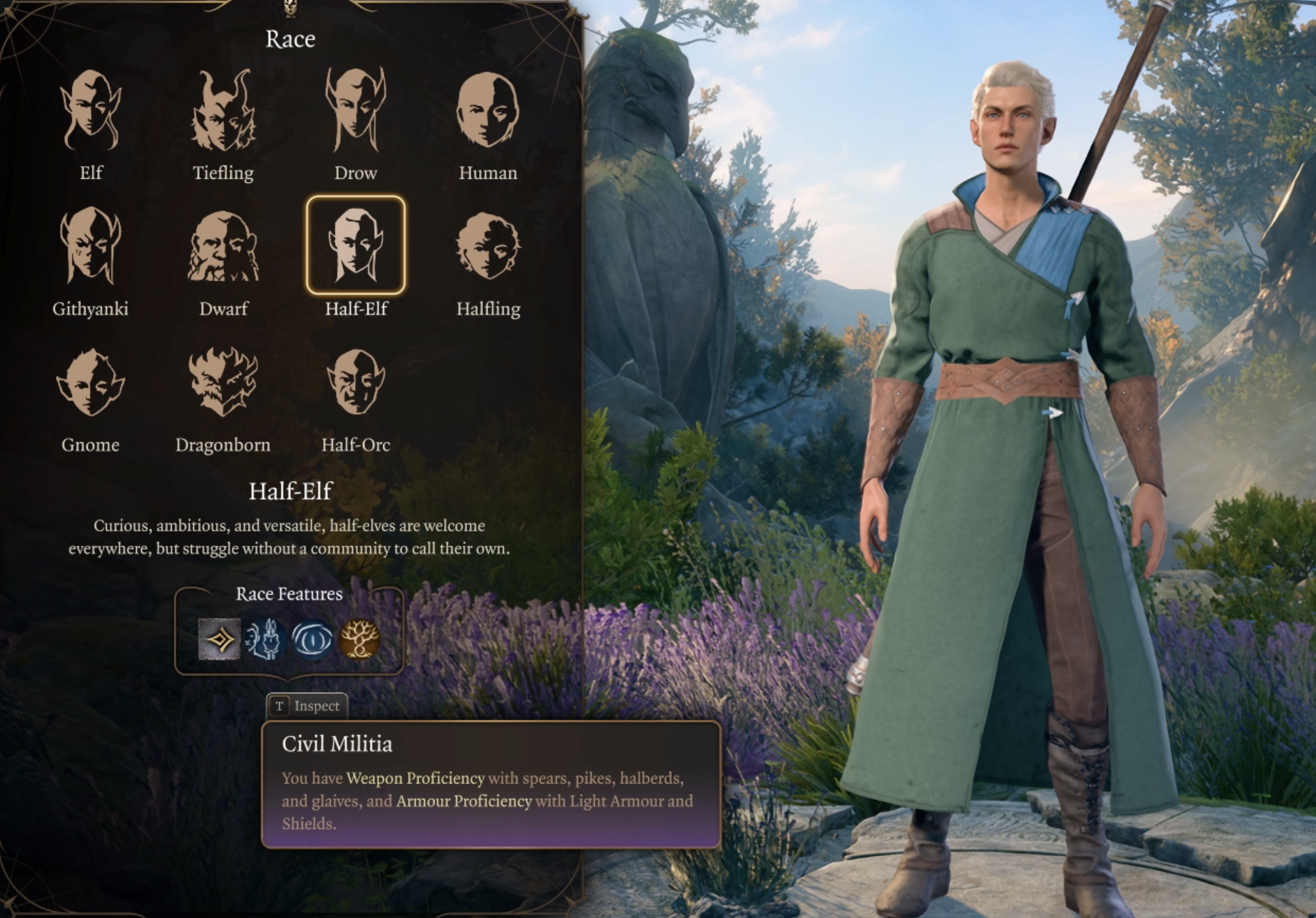
The general go-to race for Wizards is either a High-Elf or High Half-Elf. Both of these subraces gain access to an additional Intelligence-based cantrip.
If you opt for a High Half-Elf, you’ll unlock the Civil Militia feature. This gives proficiency in a few weapons and light armour, but most importantly…Shields!?
Spells in Baldur’s Gate don’t have somatic requirements like they do in D&D. So as long as you can get Shield proficiency on your caster, you’re free to equip them accordingly. All Humans have this trait, and Half-Elves get it too! It’s really the best of both worlds. Focus on clothing over light armour, as Mage Armour will be the superior choice for AC.
Overall, because of the way that BG3 is structured, you can pretty much pick whatever race and subrace you like. You get to allocate the same ability points regardless what you choose, so don’t stress too much about the details and play the game in whatever way’s most fun for you! 🙂
Stats, Background, & Proficiencies
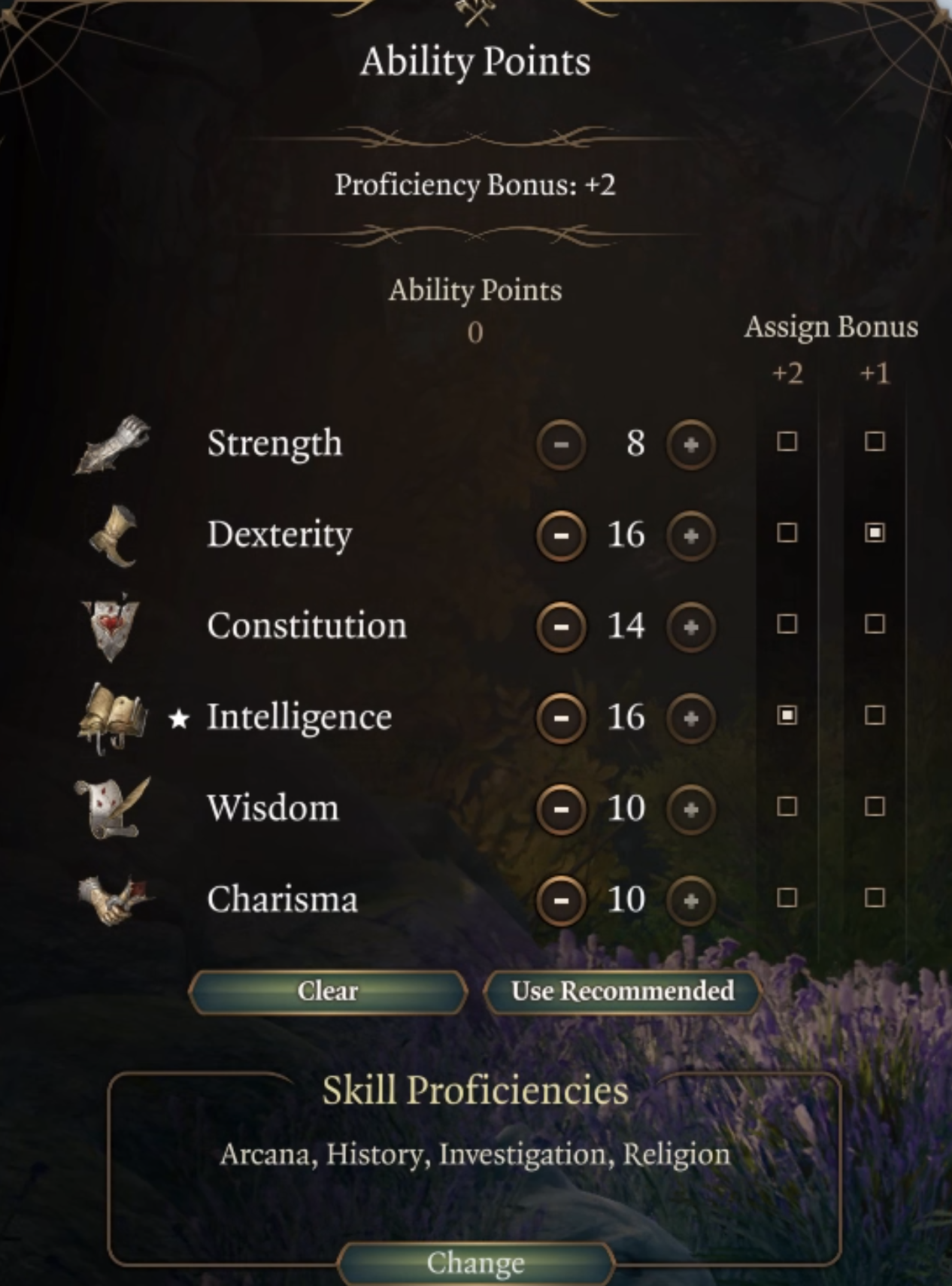
Intelligence is the primary Ability Score for Wizards. All of your spellcasting relies on this stat, and so it should be heavily prioritized over all others. With that said, my recommended level one stats may look a bit unusual. Let me explain.
Only even stat numbers matter. Characters gain an additional +1 modifier for every two ability points above 10. This means that a stat of 16 is equivalent to a stat of 17. At level one, the game caps us at 17. If you decide to go this route, you’re not being efficient with your stats. However, when appropriately distributed, you get more bang for your buck.
If you ever need to make changes, a simple visit to Withers will fix all stat problems. So even as you level-up and gain additional ability points, you can always re-spec to something more optimal.
Moving on, Dexterity is your second stat to help make your AC as high as possible. It’ll also come in handy with DEX saves. Next after that is Constitution. Hit points are always necessary and you can definitely use the bonus to CON saves.
The other three stats aren’t very important. Strength in particular is worthless for Wizards, so there’s no need to invest anything into it. Wisdom and Charisma aren’t particularly valuable, but I personally prefer to at least have a neutral score. There are a lot of spells that require Wisdom saves, and as an Enchantment Wizard, you certainly don’t want to become CC’d yourself! Charisma can likely be adjusted down later on, but at level one you can’t effectively make use of those points (note that higher scores cost more points, it’s not 1:1). Plus, if you intend to use the Friends cantrip during dialogue, it helps to not have a -1 to rolls.
Intelligence is the focus making Sage the ideal background for Wizard. This grants proficiencies in Arcana and History checks. Add Investigation and Religion as your final proficiencies.
Spells & Abilities
Wizards have a multitude of options to choose from, and with the Enchantment Wizard you’ll have extra freedom to experiment once you’ve acquired the essentials. You’ll begin with three cantrips, plus a bonus fourth cantrip from the High-Elf subrace.
When it comes to cantrips, you can more or less pick whatever works for you and your party. The only must-have would be Fire Bolt for general damage output. Outside of that, feel free to choose whatever utility skill or damage element you like. Figure out what you’ll already have access to among other members, then try to fill in the gaps the best you can.
Level 1
While your options will eventually become more flexible, there are too many important spells you need at level one. In fact, there are more level one spells than you can afford to prepare. Not to mention lack of spell slots to utilize them all. So let’s begin with the essentials.
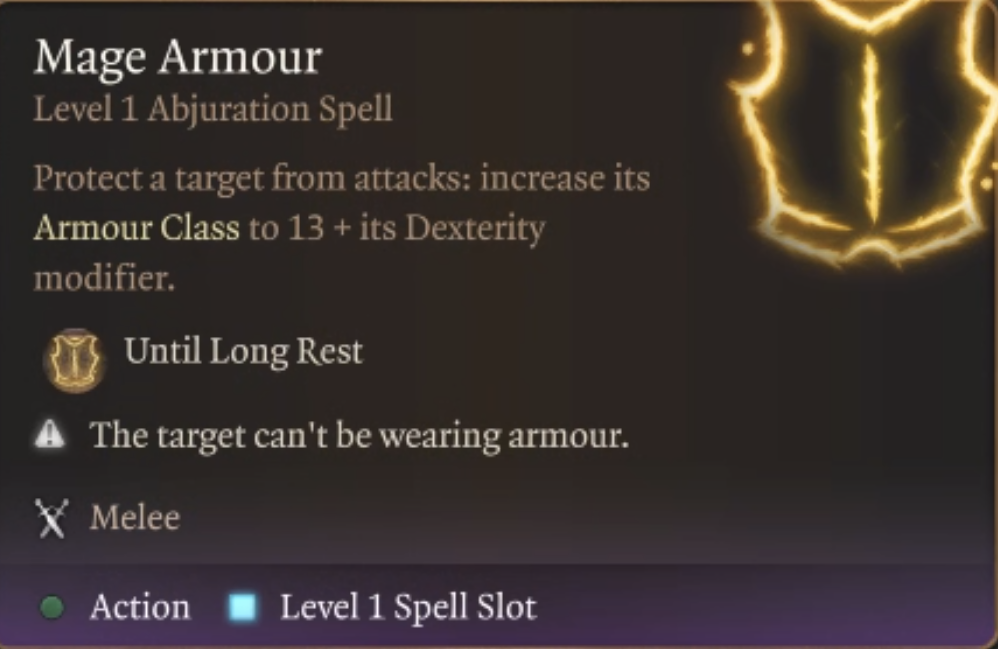
Mage Armour is an absolute staple. You’ll be wearing basic clothing, so it’s important you get as high an AC as possible. Get into the habit of casting Mage Armour after every long rest. You’ll thank yourself later when you end up in an unexpected combat scenario. You never want to waste an action on Mage Armour.
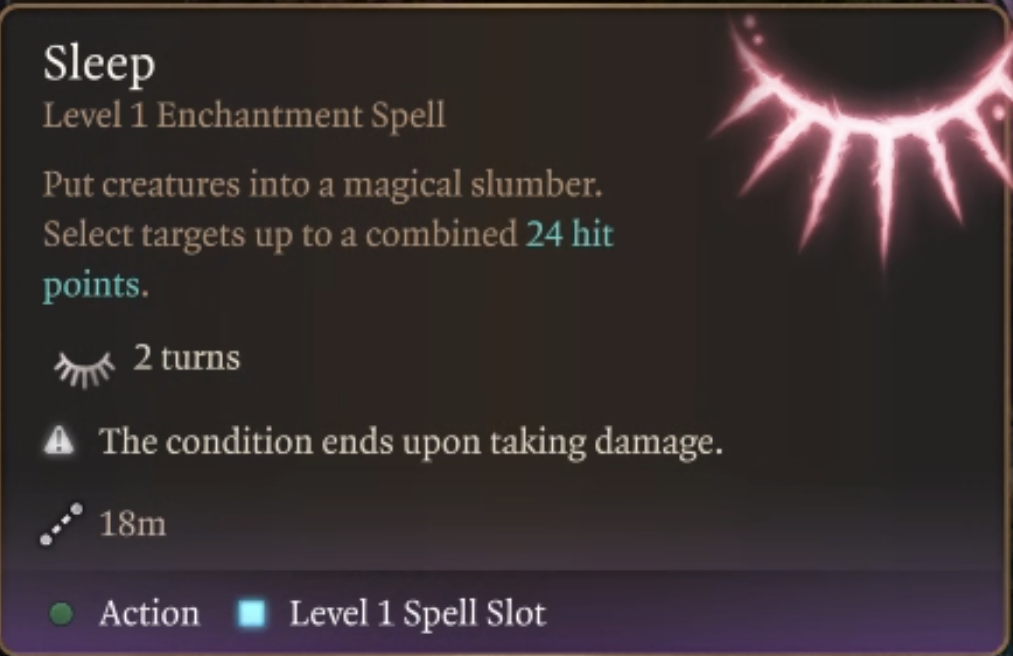
Your first Enchantment spell is powerfully flexible. You can target enemies with a combined hit point total, allowing for potentially multiple targets. It’s important to know that this counts current hit points, not their max total. So if your enemies are already weakened, you can capitalize on it even more. While Sleep does have its limitations, it’s most notable feature is that it is NOT a Concentration spell. Considering the majority of your crowd control will require Concentration, this makes Sleep an excellent back-pocket answer for when you need to lock down even more foes.
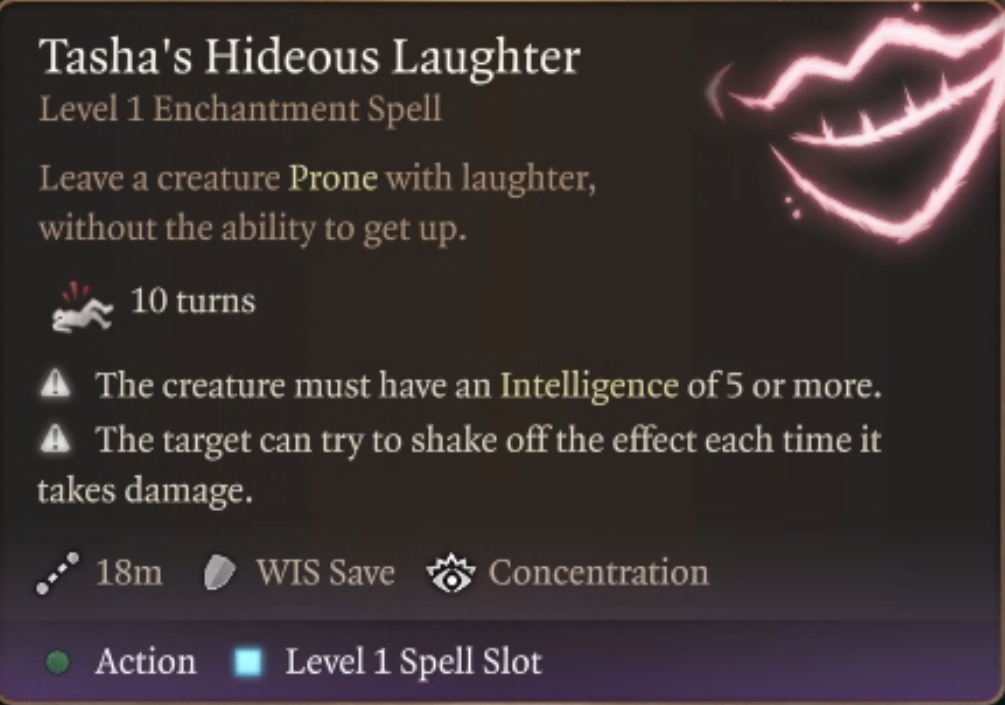
Tasha’s Hideous Laughter can completely shut down an enemy. This spell leaves them more than Prone, as they are unable to get up at all. Provided they fail their Wisdom saves and you avoid attacking them, they could be down for a hot minute! On top of that, you can always send in your allies to get advantage on close-range attacks. This will become your bread and butter control spell. It’s the best single-target option with a level one spell slot.
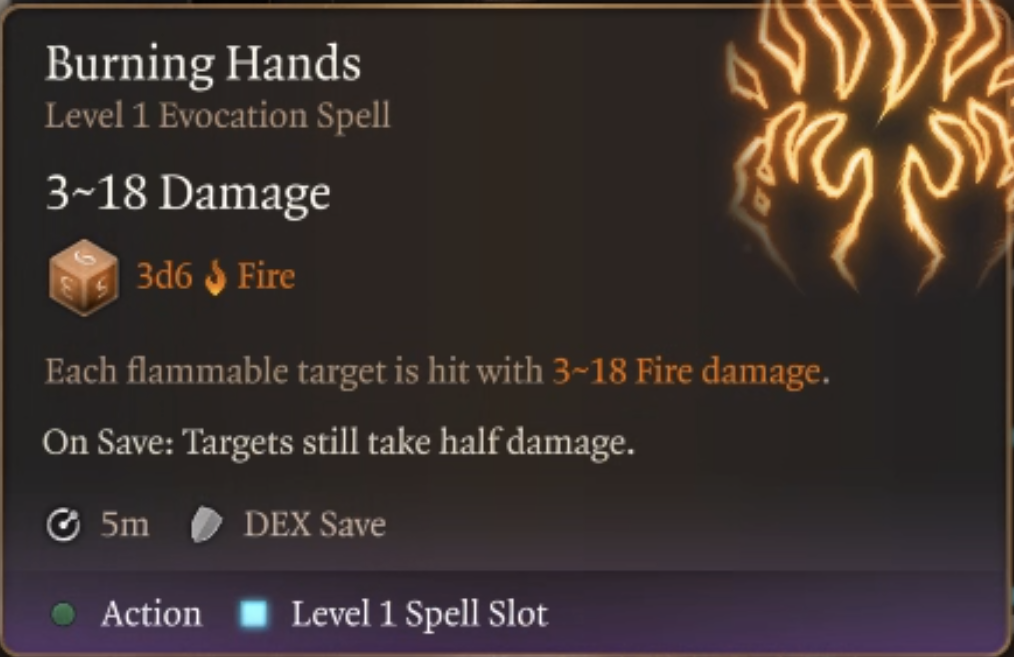
The final spell at level one is Burning Hands. This spell offers some close range AoE damage which can help if enemies close in on you. Just be careful not to break your own Enchantment spells and position yourself so that the afflicted enemies aren’t within AoE range!
Level 2
Reaching level two will unlock one of the biggest selling points for the Enchantment Wizard; Hypnotic Gaze.
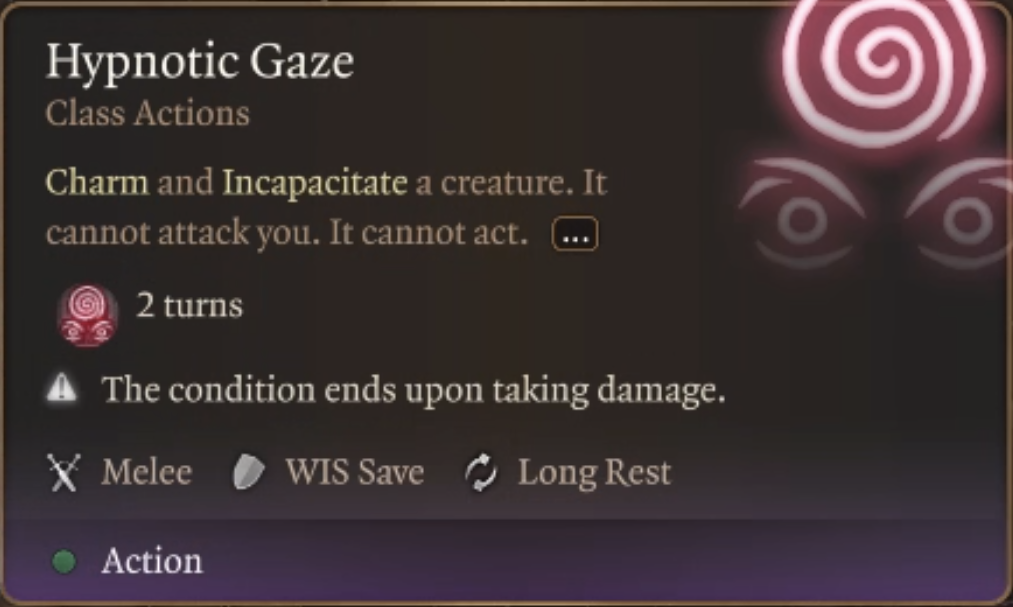
Hypnotic Gaze is a free action that will not require a spell slot in order to use it, but can only be used once per long rest. Casting this spell will incapacitate a creature with no Concentration required. Additionally, you can spend an action to extend its duration each turn. The only real drawback here is its melee range, forcing you to run up close if you intend to proactively cast it. However, it’s a fantastic defensive spell if enemies close in on you.
Magic Missile is also worth picking up at this point if you haven’t already. Guaranteed damage is excellent at picking off low health enemies. Without spoilers, there are some other use cases where it will really shine. Shield is another great option for more survivability.
Level 3-4
Now you’ll finally have access to second level spells. However, what’s even more important is that you now have twice as many spell slots. Finally, some options! There are two spells that I highly recommend at this time; a control staple and utility staple.
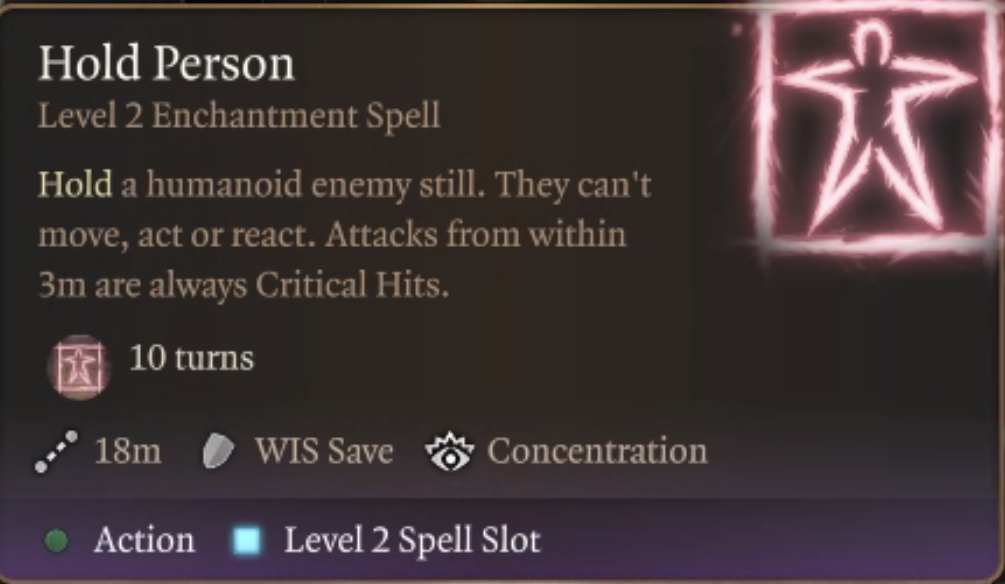
Hold Person will become one of your most effective control spells in the game. Not only does this disable an enemy, but it makes them extremely vulnerable. While Paralyzed, they are incapacitated and automatically fail Strength and Dexterity saves. Plus your allies will always had advantage on attack rolls, and even automatically land a critical hit if nearby! Were it not for the “humanoid” clause and the level two spell slot, this would outright replace Tasha’s Hideous Laughter. However, those are relevant limits, so having both spells is worth it!
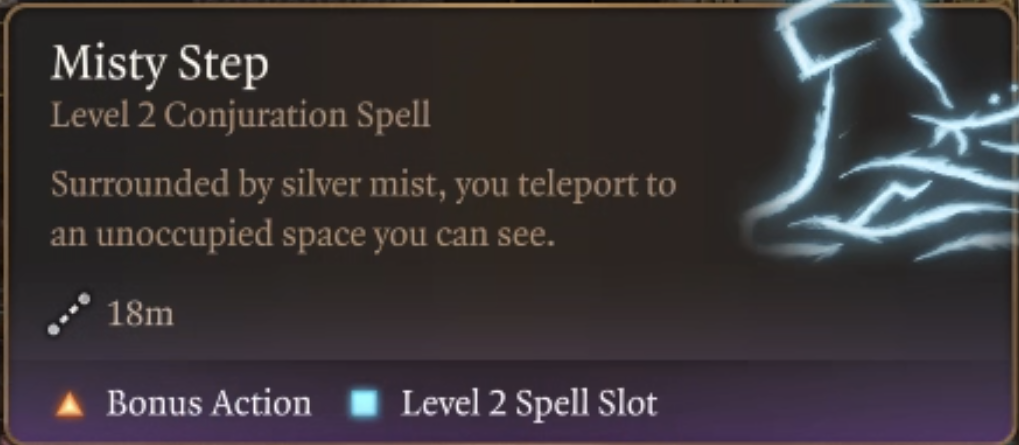
It’s no surprise we see this skill everywhere, because as a Bonus Action, Misty Step gives incredible mobility to the caster. You have few Bonus Actions overall, making Misty Step a no-brainer. Having this will help keep you out of harm’s way and can be a good way to reposition after casting Hypnotic Gaze.
Level 5
While level five may not provide any Enchantment spells, it helps round out the Wizard’s capabilities. You get a major damage boost and access to two of the most iconic spells!
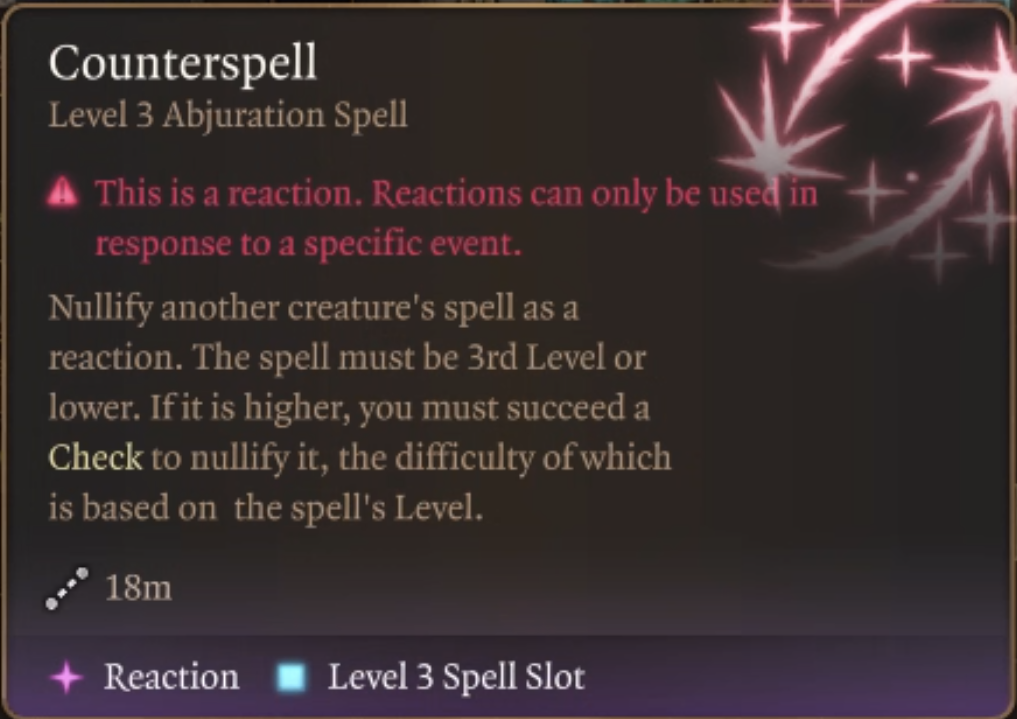
You can’t argue with Counterspell. Or well, I suppose you could if you have your own Counterspell. Hmm..
Bad jokes aside, Counterspell is an important way to stop enemy mages from disrupting your plans. It’ll keep both you and your party members safe.
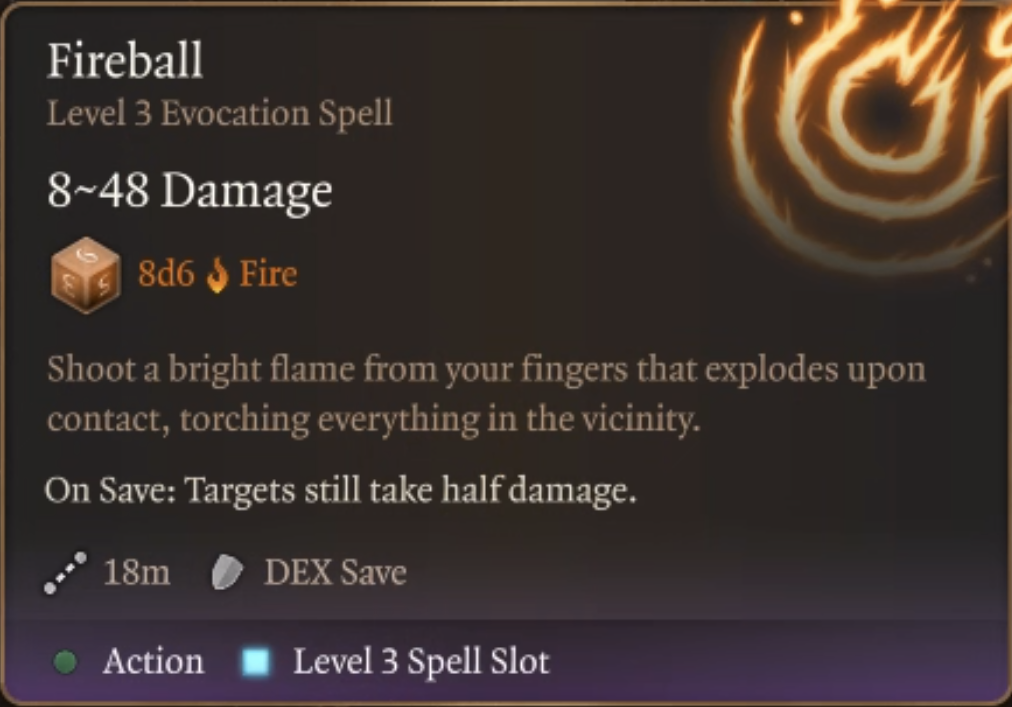
Finally, the most iconic spell of them all. You can take your pick between Fireball and Lightning Bolt. The ceiling is higher with Fireball, as you can potentially demolish a cluster of enemies. However, without the Evocation school feature Sculpt Spells, you will have to be careful not to damage your allies. Either way, the sheer damage these spells provide is worth the extra effort in positioning. Don’t leave these powerful spells on the table!
Alternative Options
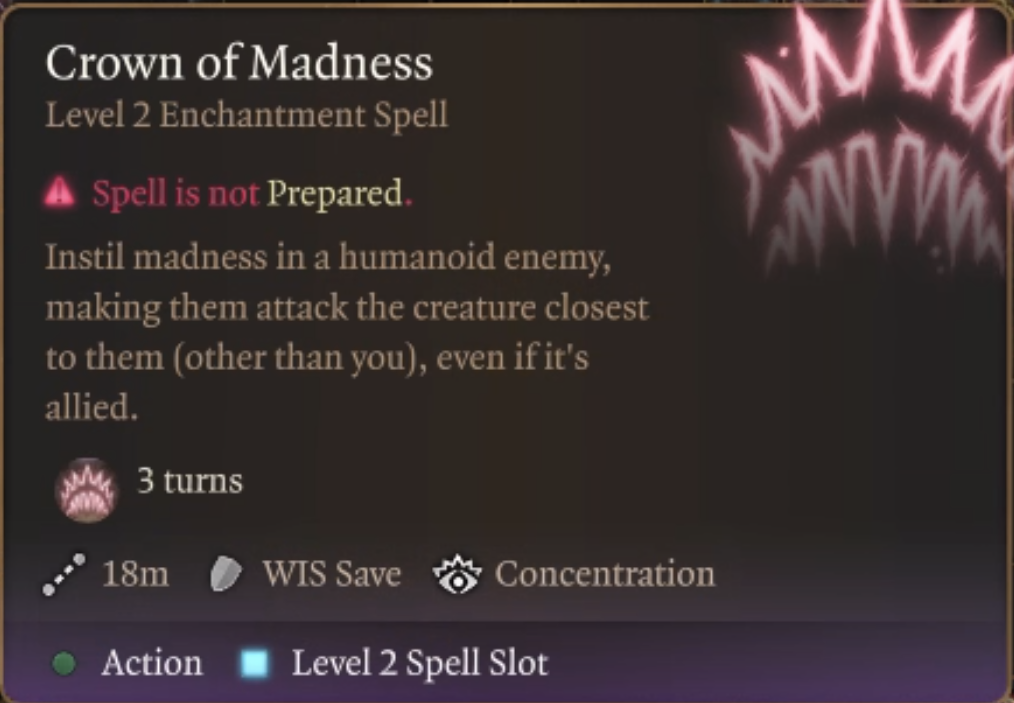
Crown of Madness is a more situational version of Hold Person. The upside is huge, as it can force an enemy to attack their own team and turn an enemy into a temporary ally. However, depending on positioning, they may still attack your party members. This can be challenging when you’re trying to avoid damage. At the very least, Crown of Madness will force an attack and keep that enemy from casting spells, which may be the biggest problem. However, if you’re looking for the safest option, Hold Person will better keep them contained.
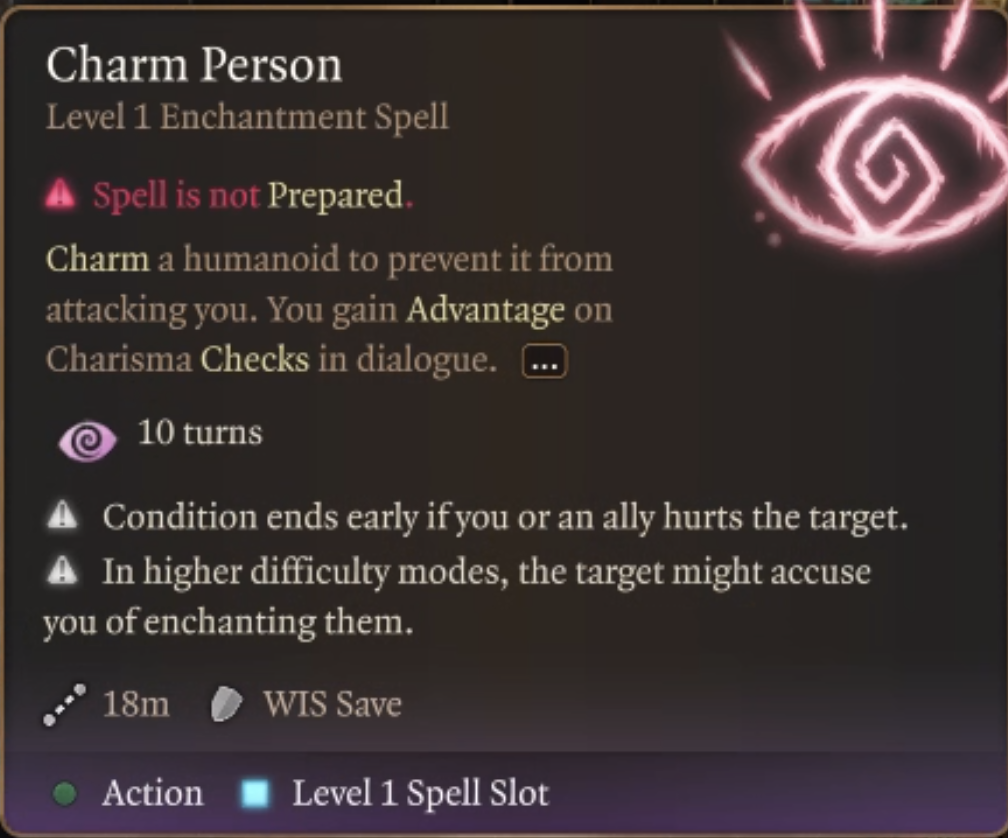
Charm Person is a reasonable spell, but outside of combat it’s often easily replaced by the Friends cantrip. As for its battlefield use, similar to Crown of Madness, it will only protect the user. This could be useful if you need to keep a particular enemy away from you, but they can still go after your party. One definite plus is that it doesn’t require Concentration, so if you’re looking for more Concentration-less control spells, Charm Person could be a solid consideration.
Equipment
If you’re playing as a High Half-Elf, make sure you have a Shield for the +2 AC bonus. Aside from that, all you need is clothing to take advantage of Mage Armour. Here are some weapons and accessories to look out for on your travels!
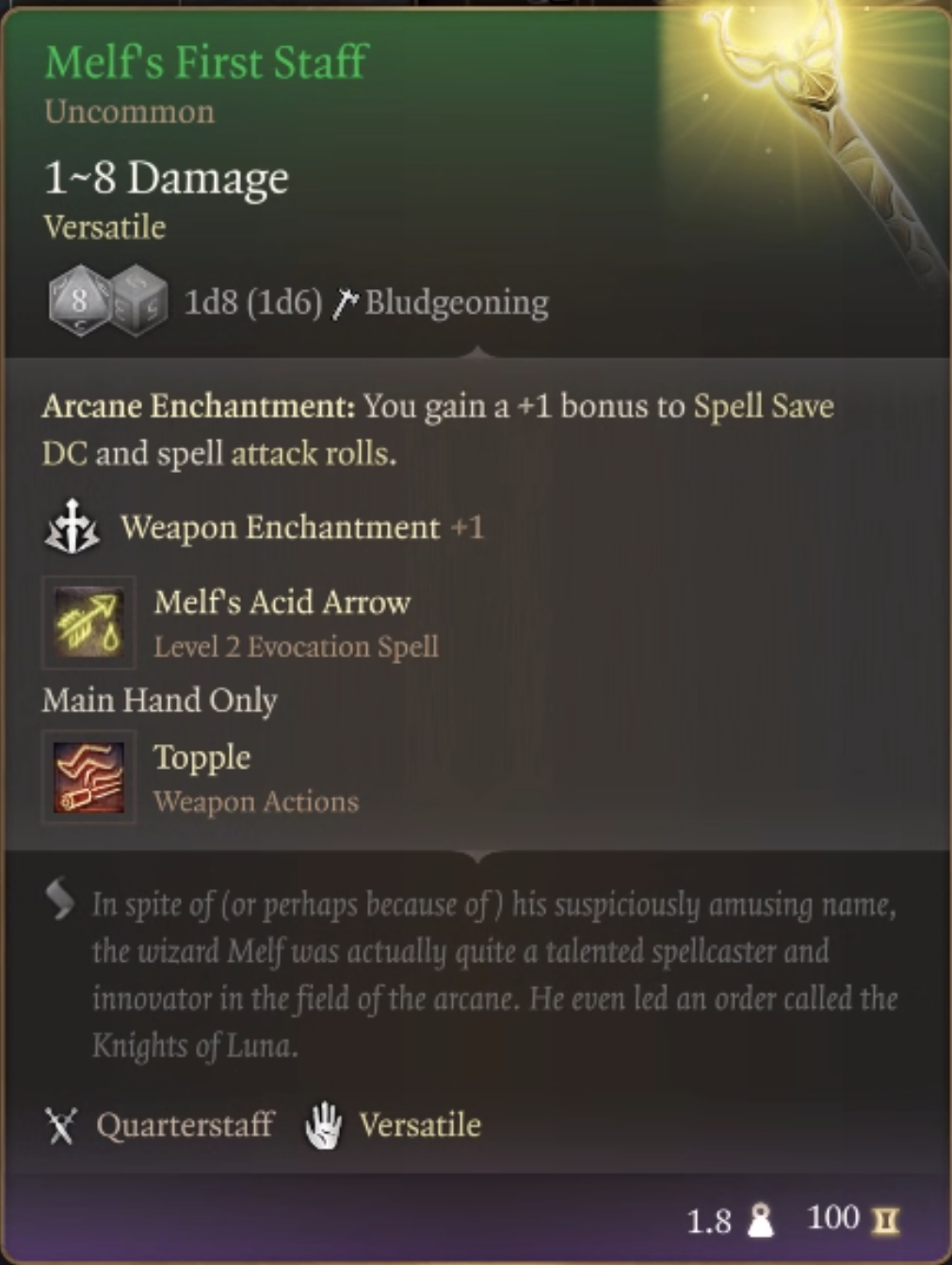
Melf’s First Staff is an excellent choice to improve your Spell Save DC. As an Enchantment Wizard, this is extremely important to improve your odds of keeping enemies locked down. Also having access to a free damage spell in Melf’s Acid Arrow is a welcome bonus, especially given that we lack damage variety as a supporting mage.
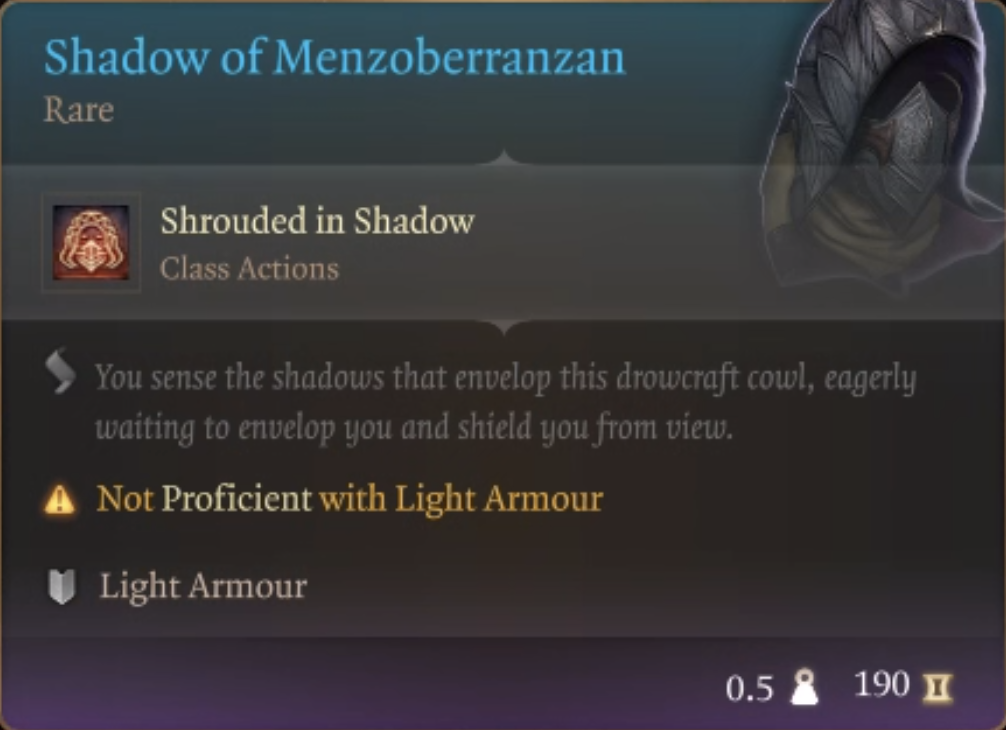
While Shrouded in Shadow does conflict with our Concentration spells, it’s hard to argue with a “get out of jail free” card. When things get out of control, this can help you reposition and prepare a better opportunity when you rejoin the fight.
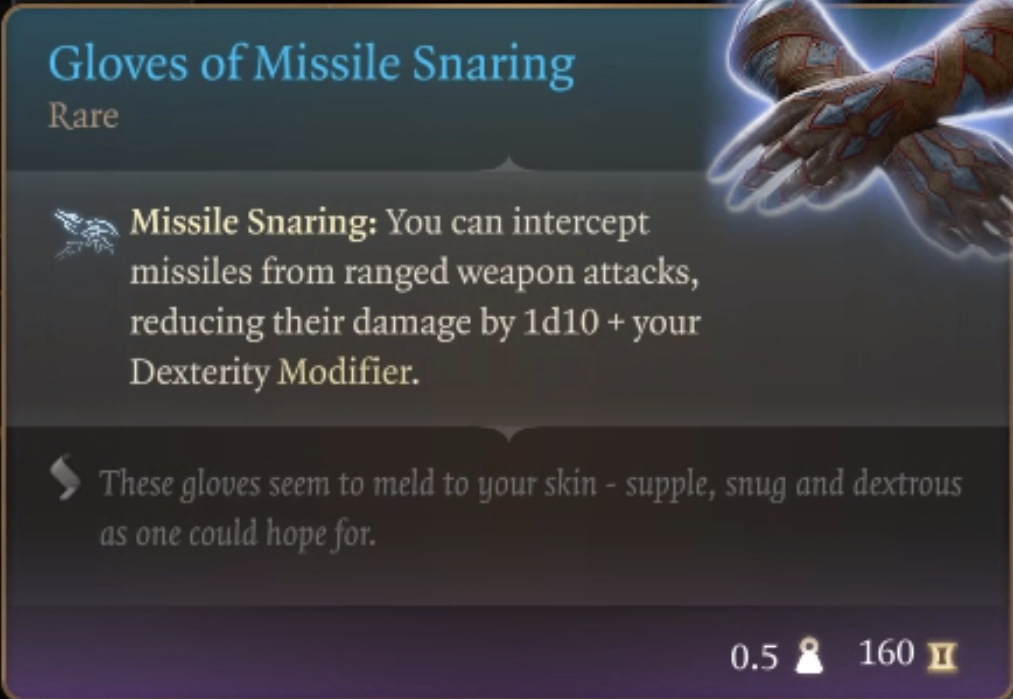
This is a handy reaction to have, especially since we’ll have a decent DEX modifier. Not only does this prevent some damage, but it can occasionally stop damage altogether, which in turn prevents the chance of the attack breaking our Concentration.
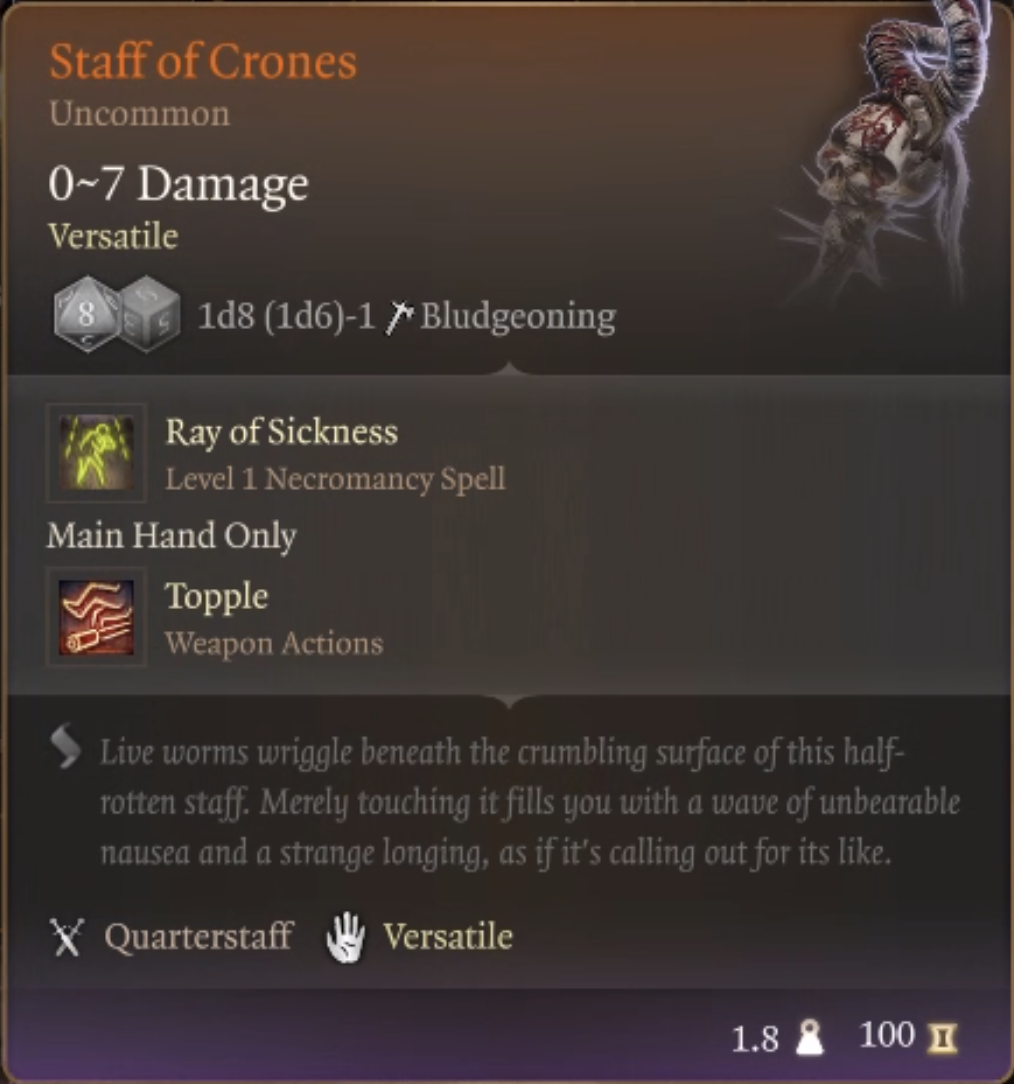
Not quite as effective as Melf’s First Staff, but free spells are always welcome over having a generic melee weapon on a caster. You’ll likely obtain this first, making it a solid option until the upgrade to Melf’s.
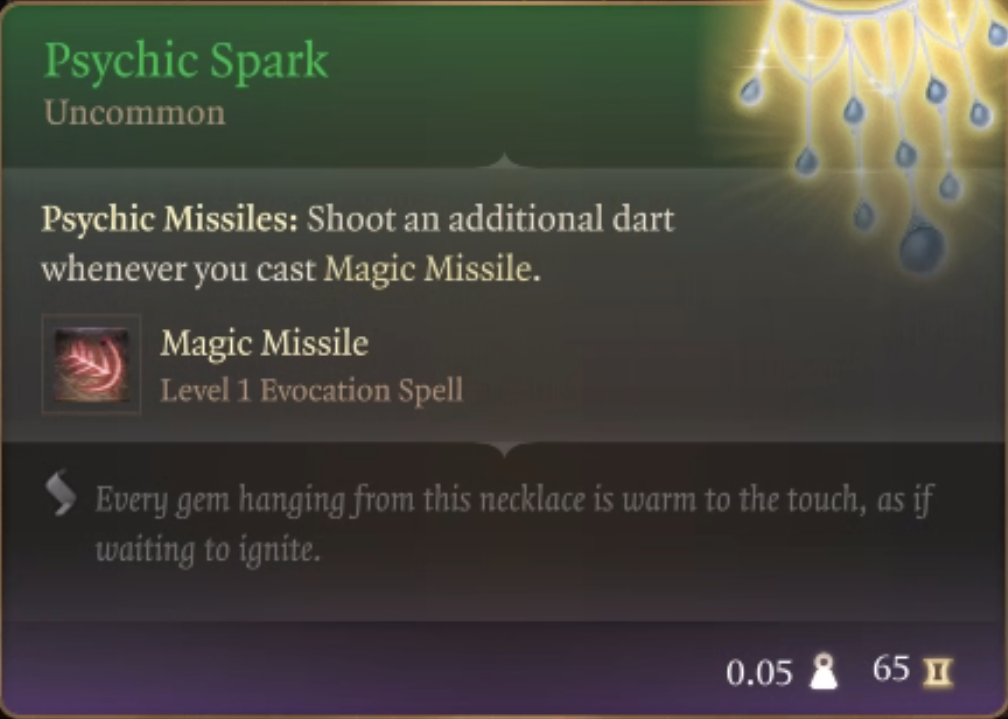
What’s great about this is you gain one free Magic Missile that doesn’t require a spell slot. What’s even better is that ALL your Magic Missiles will shoot an additional dart. That effectively means you’re casting Magic Missiles at +1 spell level higher. A welcome addition for any Wizard.
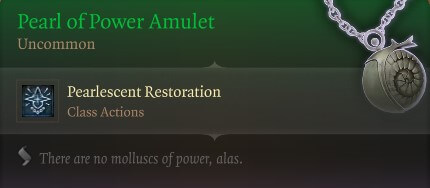
Spell slots are a valuable resource that must be carefully managed.. But the Pearl of Power Amulet helps make things much easier!
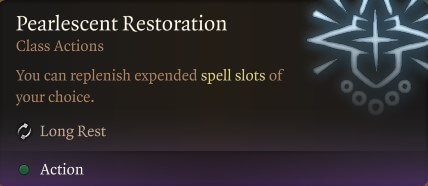
It’s essentially an extra Arcane Recovery that works up to level three. You can even equip it temporarily to cast the spell, refresh a spell slot, then switch back to another amulet. Great value!
Conclusion
Baldur’s Gate 3 allows the players full control to take on challenges in so many different ways. The Baldur’s Gate 3 Enchantment Wizard helps assist that, as you’ll have plenty of available options both on and off the battlefield. So long as you have your control spells at your core, the rest of your spellbook is up to you!
 Download APP
Download APP